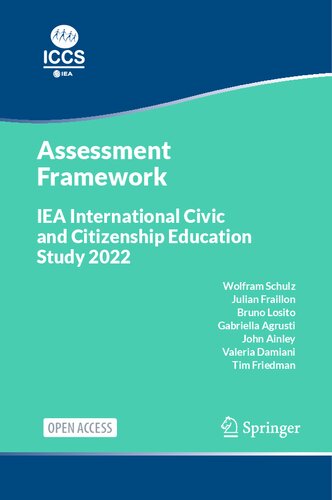

Most ebook files are in PDF format, so you can easily read them using various software such as Foxit Reader or directly on the Google Chrome browser.
Some ebook files are released by publishers in other formats such as .awz, .mobi, .epub, .fb2, etc. You may need to install specific software to read these formats on mobile/PC, such as Calibre.
Please read the tutorial at this link: https://ebookbell.com/faq
We offer FREE conversion to the popular formats you request; however, this may take some time. Therefore, right after payment, please email us, and we will try to provide the service as quickly as possible.
For some exceptional file formats or broken links (if any), please refrain from opening any disputes. Instead, email us first, and we will try to assist within a maximum of 6 hours.
EbookBell Team

4.4
62 reviewsThis open access publication outlines the underlying framework for gathering data on civic knowledge, attitudes, and engagement as well as contextual information, and it describes the assessment design for the International Association for the Evaluation of Educational Achievement’s (IEA) International Civic and Citizenship Education Study 2022.
The IEA International Civic and Citizenship Study (ICCS) investigates how young people are prepared to undertake their roles as citizens in a range of countries in the second decade of the 21st century. ICCS 2022 is a continuation of two earlier IEA studies, ICCS 2009 and ICCS 2016, and, for the first time, this survey includes the option of a computer-based assessment. Responding to enduring and emerging challenges of educating young people in a world where contexts of democracy and civic participation continue to change, the study addresses issues related to young people’s engagement through digital technologies, migration and diversity, perceptions of the political system, global citizenship, and education for sustainable development.
Over the past 50 years, IEA has conducted comparative research studies in a range of domains focusing on educational policies, practices, and outcomes in many countries around the world. Prior to ICCS 2022, IEA conducted four international comparative studies of civic and citizenship education, with a first survey implemented in 1971, a second one in 1999, third in 2009 and fourth in 2016. ICCS 2022 data will allow education systems to evaluate the strengths of educational policies, both internationally, and in a regional context, and to measure progress in achieving critical components of their educational policy agendas.